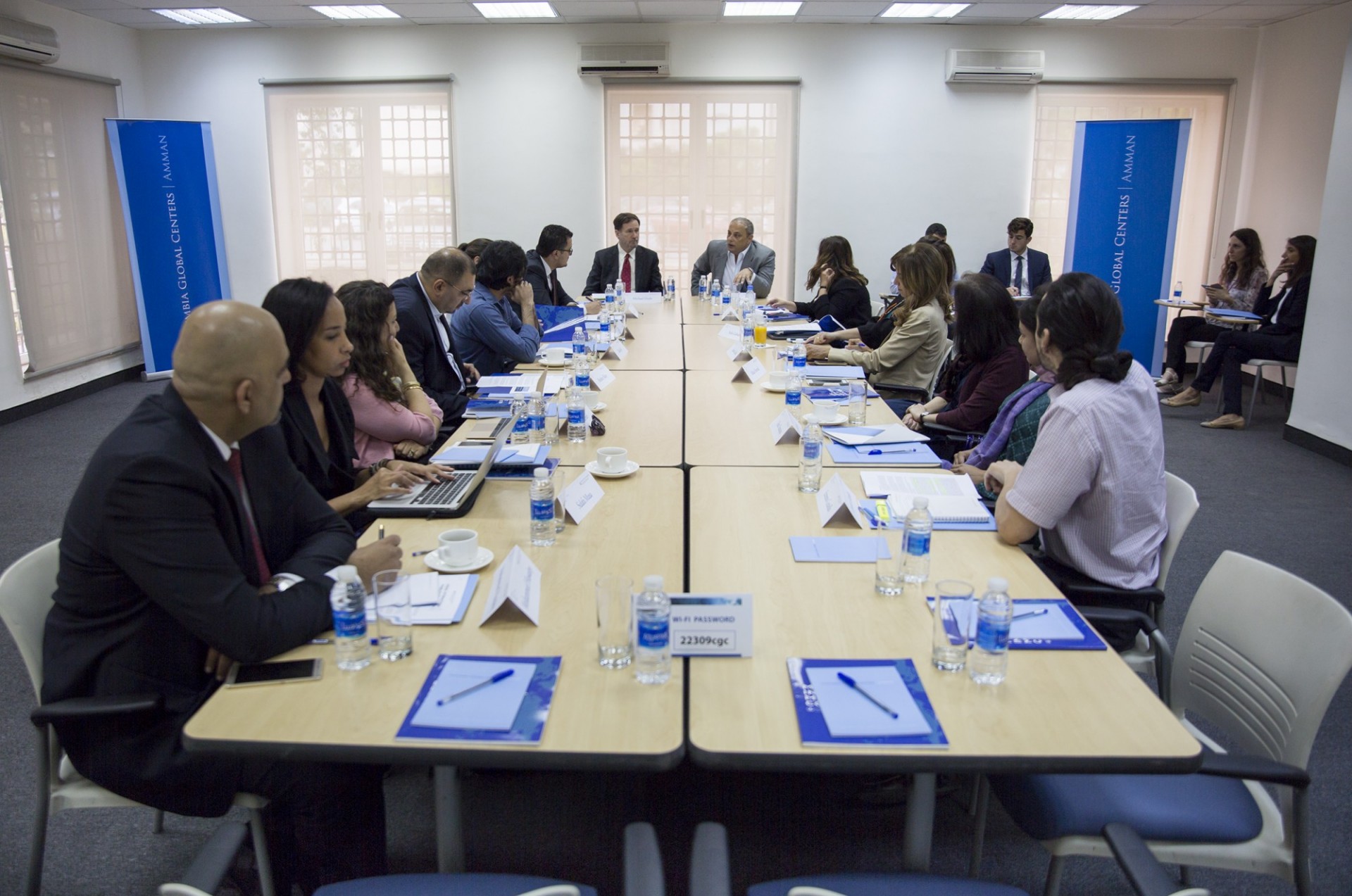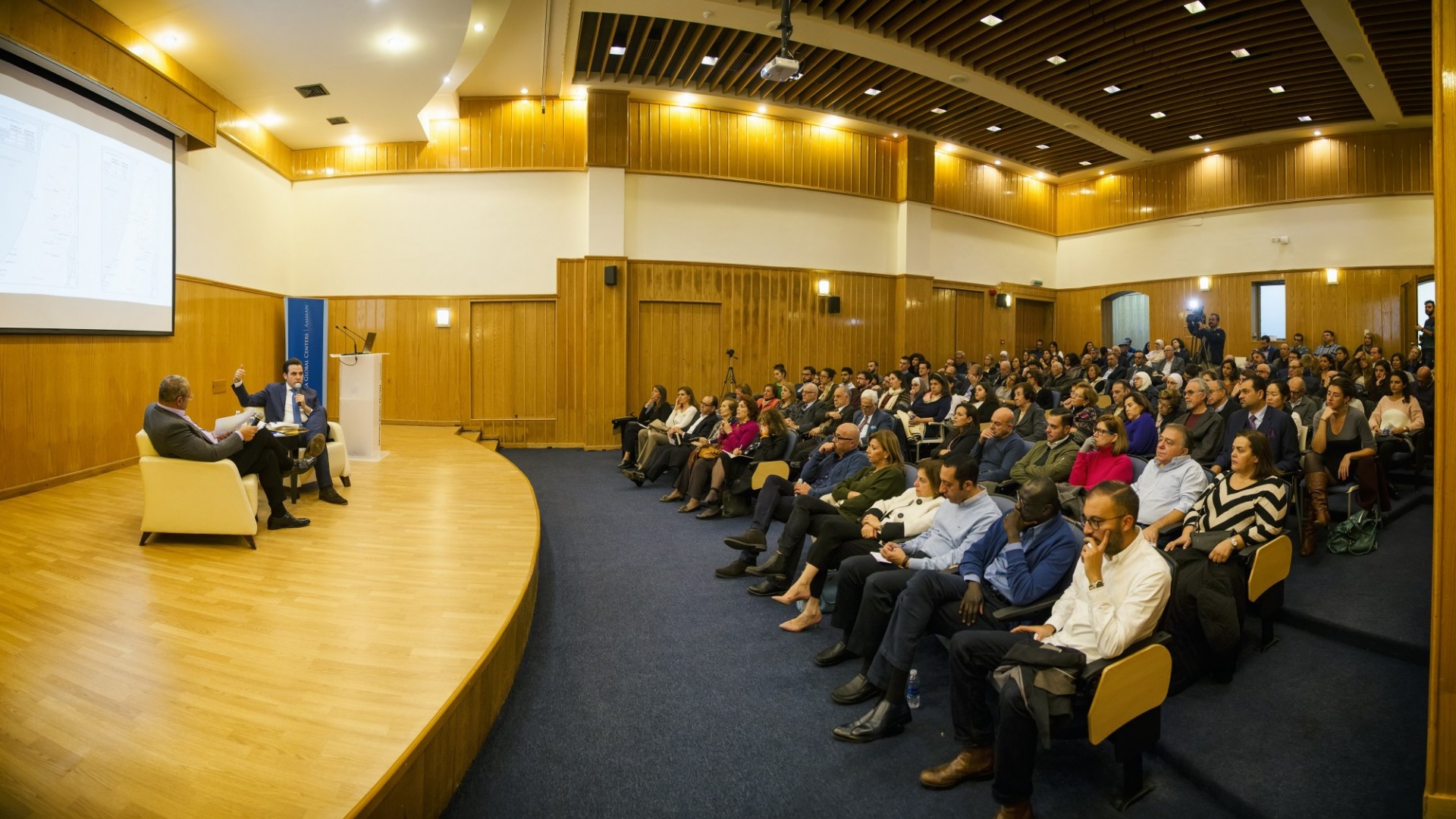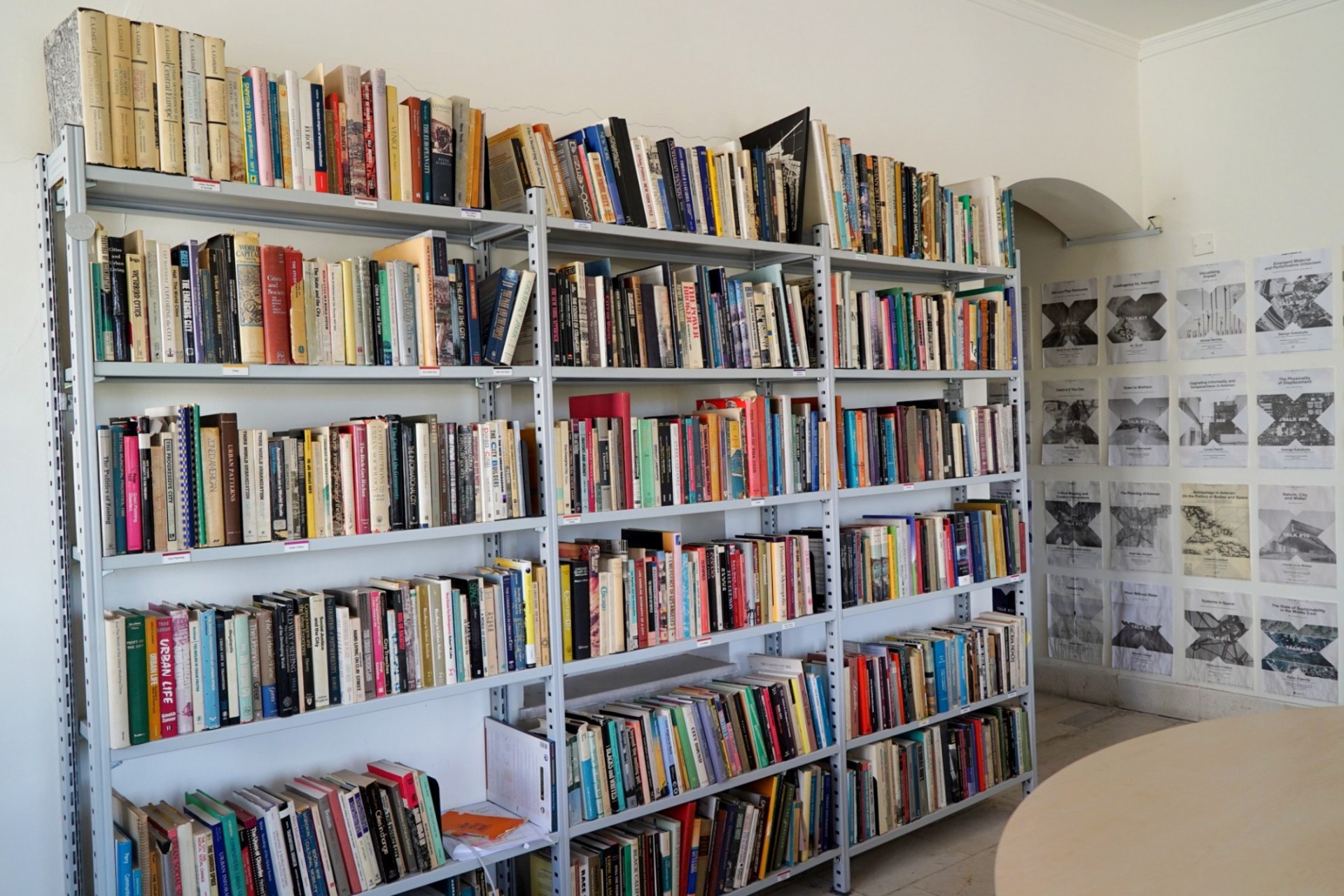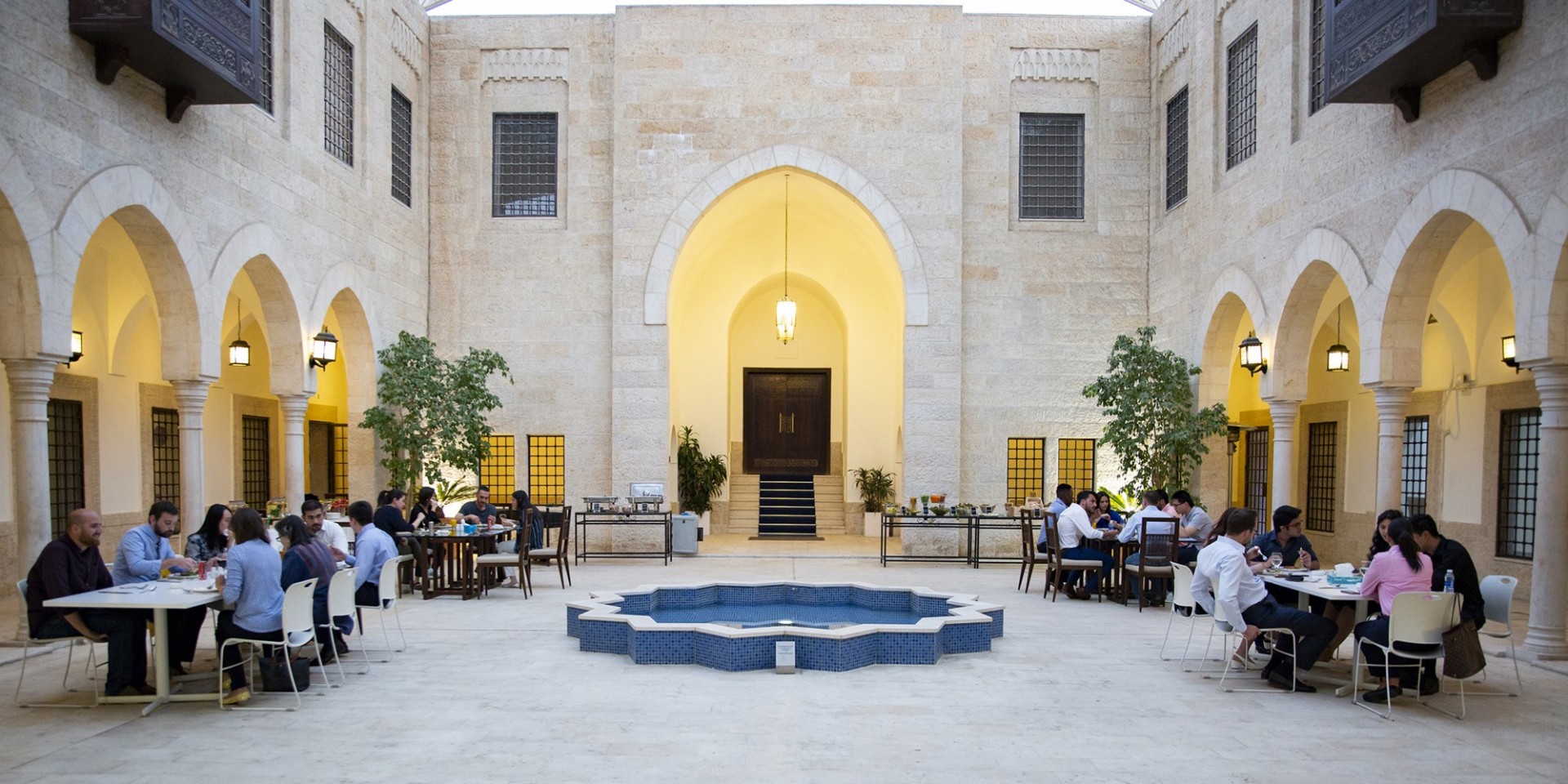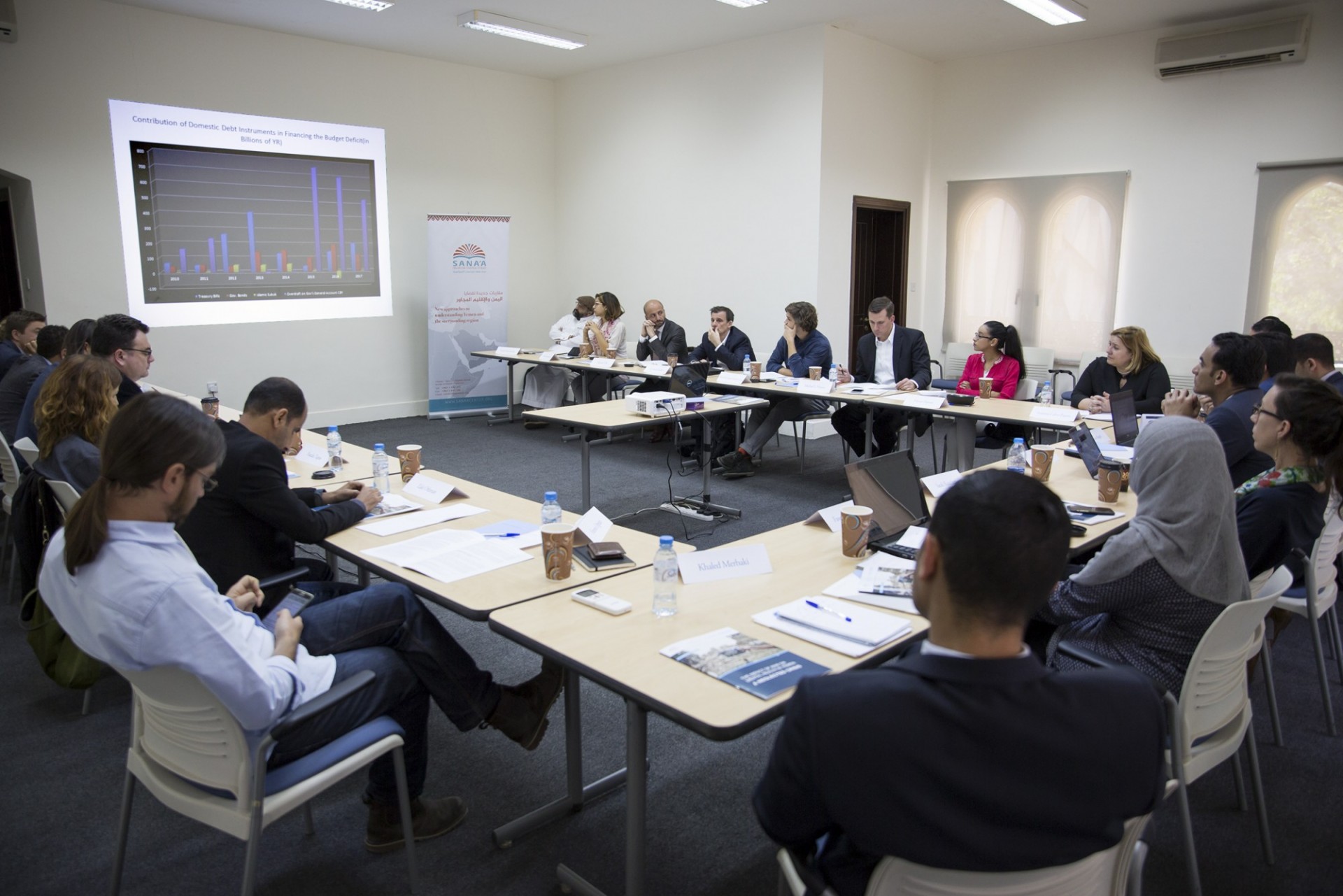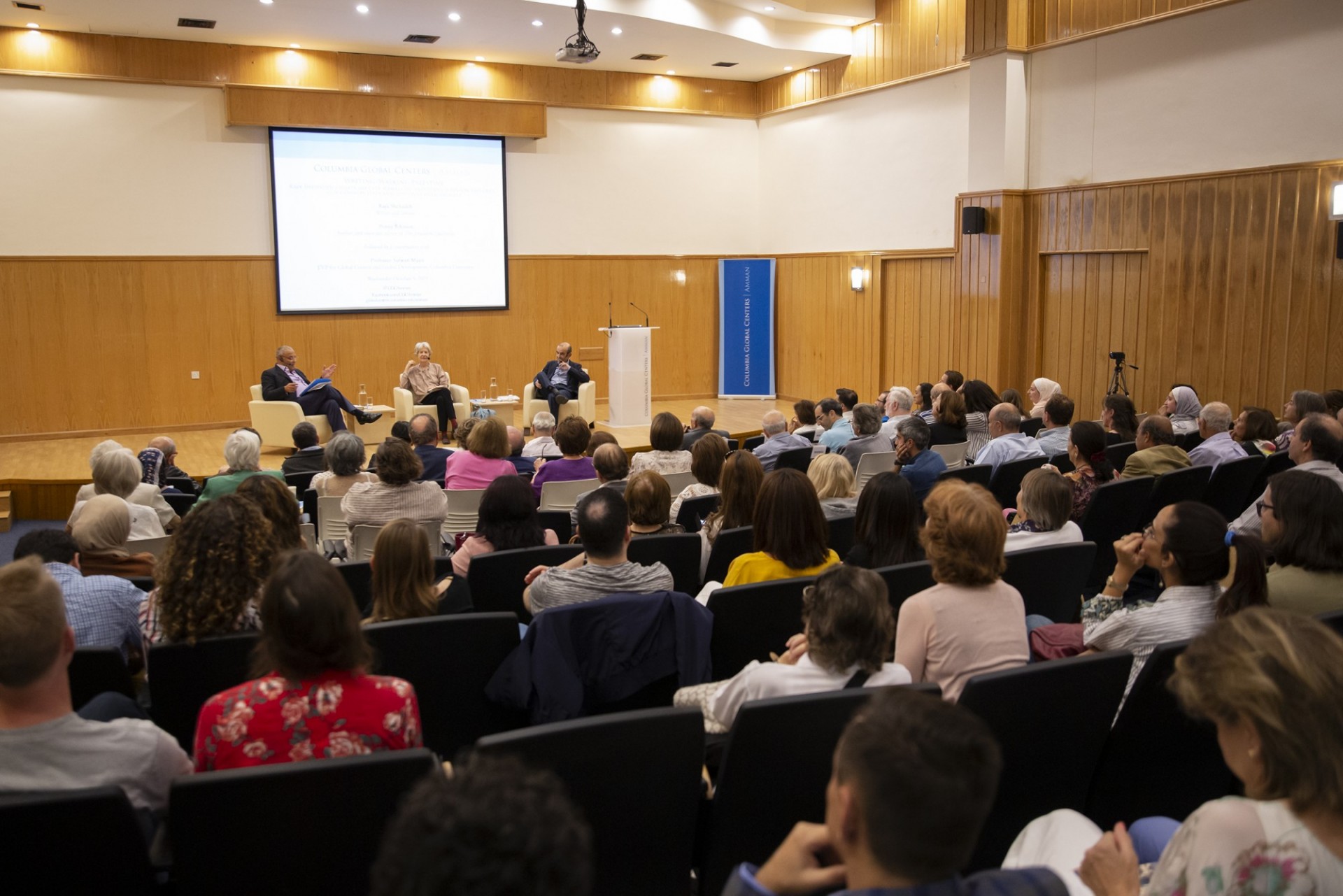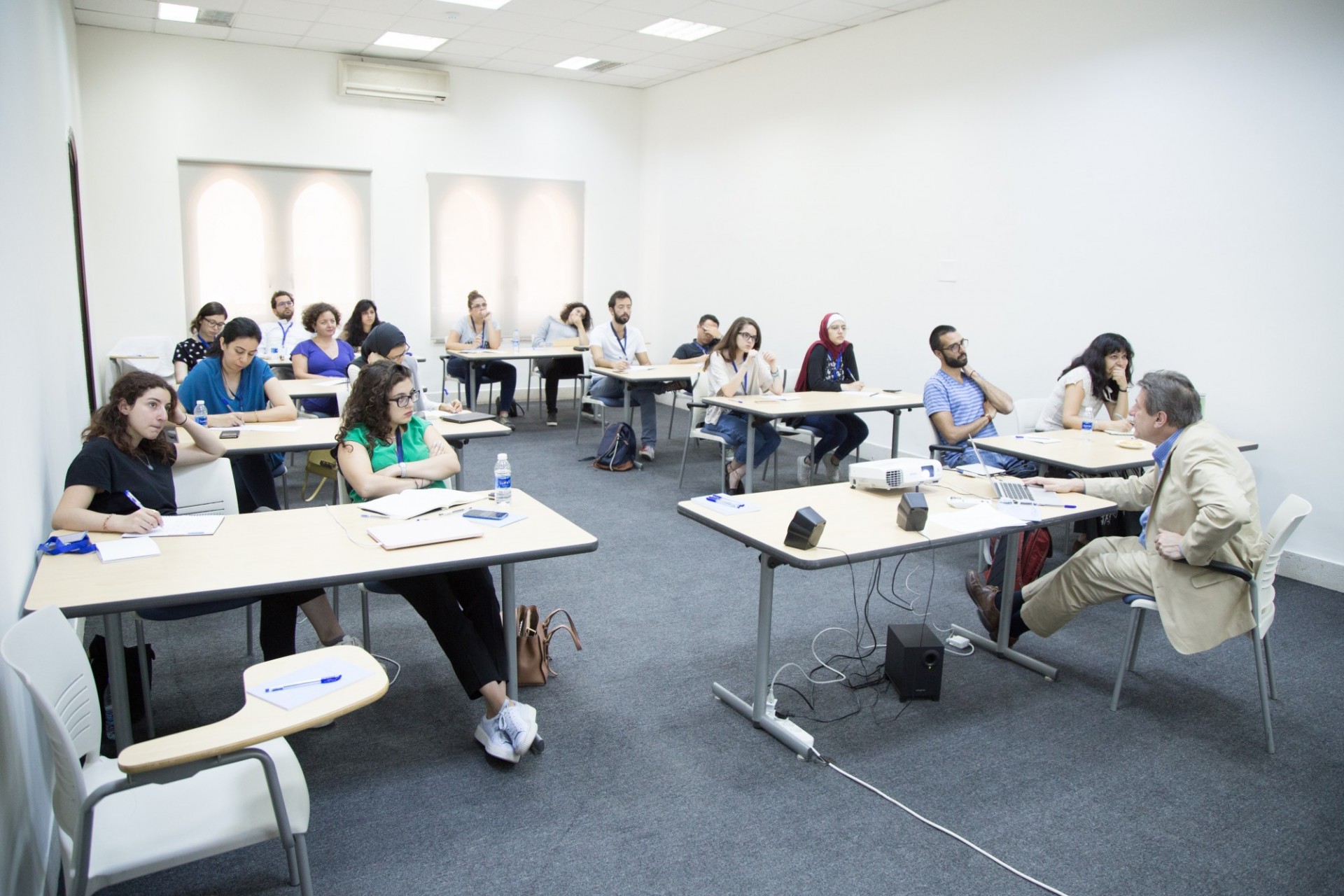Columbia Global Centers | Amman was established in March 2009 as one of the first in the network of Columbia Global Centers. The Center was created because of the realization of then-President Lee C. Bollinger, and a number of other University leaders, that Columbia needed to learn more about the world around it and engage more fully with global partners. With its headquarters in Amman, Jordan, the Center serves as a hub for programs and educational initiatives throughout the Middle East. These activities serve mutually beneficial ends: the Center offers Columbia students and faculty opportunities to expand scholarship, and its work contributes to knowledge exchange and skill development with academics, experts and practitioners throughout the region.
Location: Middle East
From the outset, there was little question that the Middle East was ripe with opportunities—and needs—for implementing Columbia’s global strategy. From renewable energy to nuclear proliferation, some of the most important global issues are rooted in the region. The choice of establishing a foundation in the region is essential in terms of better understanding geopolitical trends, improving East-West relations, and promoting religious and cultural tolerance. The Middle East region is rich in history and culture and is fertile ground for growth and development. With 35% of the population under the age of 15 in many of the region’s countries, the youthful nature of the region must rapidly develop to meet the demands their countries will face in the coming decades. And though the region once boasted the world’s first libraries and impressive educational traditions in engineering, medicine, and literature, the legacy of scholarship in the Middle East has suffered from neglect and insufficient funding for centuries; requiring significant investment and innovation in the field of education.
The Columbia Global Centers Network
There are currently ten Columbia Global Centers operating in Amman, Athens, Beijing, Mumbai, Paris, Istanbul, Nairobi, Santiago, Rio de Janeiro, and Tunis. The centers encourage new relationships across schools, institutes, and academic departments at Columbia. Attuned to the priorities and unique circumstances of its host region, each center leverages the University’s diverse intellectual capacities from across the undergraduate, graduate and professional schools, and pursues a set of university-wide core activities that evolve over time based on the active engagement of faculty and students. The centers help increase international content in the classroom; supplement the curriculum with international study abroad, internship opportunities, and course offerings; provide resources needed to attract students from abroad; facilitate research opportunities for Columbia students and faculty on globally relevant, interdisciplinary topics; and provide a point of ongoing engagement for international alumni.
Functioning as a network, the global centers encourage teaching and research that require working across disciplinary boundaries, having a presence in multiple regions, and engaging non-Columbia experts and scholars from those regions. Some of the centers’ programs and research initiatives are country-specific, some regional, and an increasing number are multi-regional, even global. The network is in its infancy, and each center has started by building strong links with universities and institutions in its respective region. The long-term ambition is that many programs will have a global reach and involve multiple centers in the network engaged in truly global conversations.
To learn more, please visit Columbia Global Centers.
